STARLITE CREATORS Vol.9A key for overseas business is “human resource development!” Global CREATORS aiming for self-reliance and co-creation
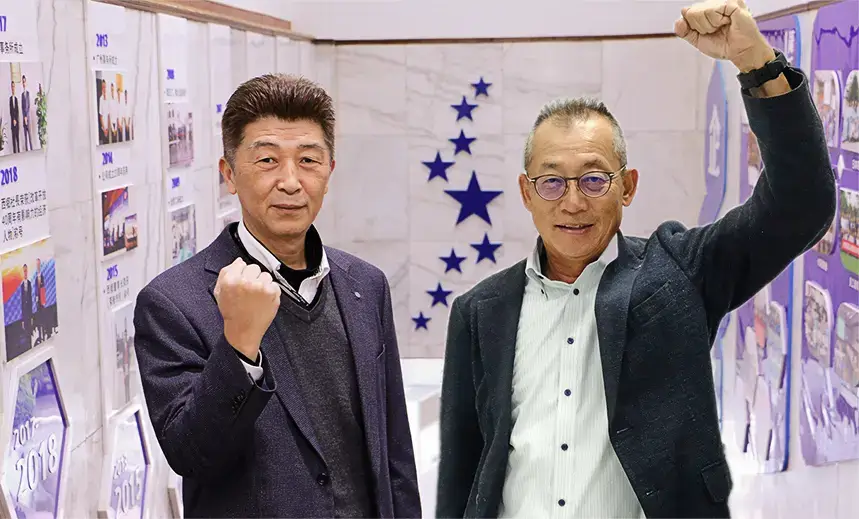
Good afternoon. This is Tsujimoto from Public Relations. This is the 9th article on Starlite Creators! This time, I am going abroad and interviewing overseas creators! What thoughts have driven Starlite trailblazers who supported global expansion? Let’s speak to Mr. Y.T., chairman of our group company in Thailand, and Mr. I.S., vice president of our group company in China.
Sudden oversea assignment
How did your first overseas assignment come about?

YT:I was assigned to Thai Starlite Manufacturing (Thai Starlite) in Thailand in 1996 as an engineer. One day when I was spending busy days at Ritto Plant, designing frame cases for photocopiers and preparing for production start-up, my manager suddenly came to me and said “I want you to roll out Monozukuri with Japanese Quality at Thai Starlite.” To be honest with you, I was ready for it because my manager who was assigned to work in Thailand before me had already told me “it would be you next.” :)

IS:I was also like Mr. YT; it came all of a sudden. I was assigned to Starlite Plastic Products (Kunshan) Co., Ltd. in China (Starlite China) in 2003 with the mission to make the company independent and develop the market in China. It was a time when China’s accession to the WTO opened up the market and more and more Japanese companies were entering the market.
Japanese style did not work well in China
What was China like for you, Mr. I, in real life?

IS:It was as if the time had slipped back in time to the Japan of the 1980s when I spent my childhood. It would be hard to imagine from today’s China, however, there were many farming villages around the company when I was first assigned, and infrastructure was not yet in place. In addition, there was a lot of misunderstanding between local employees and myself mainly due to cultural differences. For example, in Japan, when the slightest dispute arises, people tend to make an apology straight away and put the matter to rest, however, this is not the case in China. Also, when I reprimanded a subordinate for making a mistake, they would turn away, and when I asked them to follow up on something other than their own work, they would reply flatly, “that is not my job.” Things like this continued and I could not say what I wanted to say and the stress gradually built up.
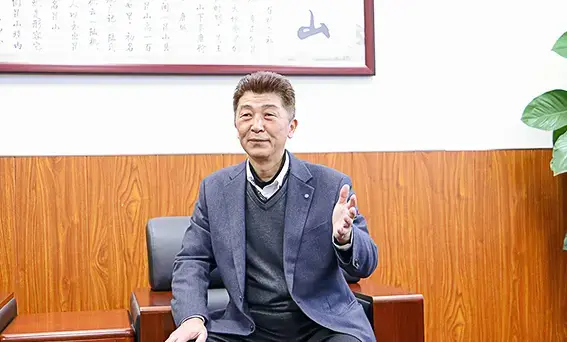
How did you come out of that situation?

IS:I discussed it with my supervisor who immediately admonished me, saying “it is your fault,” and taught me Chinese values and work ethics. I learned that making an apology is an extremely serious act, being scolded in public is an unbearably humiliating act, and that they always think rationally about what moves would be beneficial to them. In other words, local employees were just being honest with me. I was disrespecting Chinese values and imposing my Japanese way of thinking on them.
After that, I changed my attitude drastically and tried to learn Chinese values and understand their way of thinking before stating my opinion. When a subordinate made a mistake, I listened to their thinking first and explained in a logical and polite manner, saying “This is how I would want you to improve next time because...” Even if I had to rebuke an employee, I would ask them to come to a meeting room and discuss “what to do next”. When they made improvements, I praised them effusively. Also, I committed to employees who showed no interest in anything other than their assigned work, telling them “if you do this, it would lead to this kind of benefit” to improve their sense of advancement and I worked together with them to realize it. Gradually, we got to know each other and I was able to work hard because of the kindness of the local employees and the warmth of their hearts towards their large families. Thanks to everyone, I am where I am today.
Communication to build trustful relationship with team members
横スワイプで続きを
I could only take care of myself during my first assignment
Mr. Y, how did you perceive Thai values?

YT:When I went to Thailand for the first time, honestly speaking, I was not expecting local employees to help me. My mission was to transfer production from Japan and I made myself believe that I must do everything on my own, especially any technical matters.
When there was a defect on mass production parts, I brought a mold to the plant. When we were not able to source the planned raw material, I made a suggestion to change the material. I was so busy running around that the mold manufacturers and material suppliers would say to me “you again?!” Every time I solved one problem, a new one would come up. Every day was like a whack-a-mole game. At that time, all I could think about was not to stop production. I was frantically working, believing “If I say I cannot do it, it will be the end of TSM. I need to manage this. I need to, I need to…” That is why I could not create opportunities to learn from local employees. After my return to Japan, I regretted that I had done something so regrettable.
You were assigned to Thai Starlite again in 2018.

YT:Prior to this assignment, I was in charge of Starlite China. As I was frantically working to provide technical guidance and make environmental improvements in order to develop human resources to lead the rapidly growing Chinese society, the thought kept coming back to me: “I wish I could have done this at Thai Starlite.” I had always regretted how I worked at Thai Starlite. Thus, when my performance at Starlite China was recognized and was reassigned to Thai Starlite, it thought it was fate. I felt “I can finally return the favor to them.”
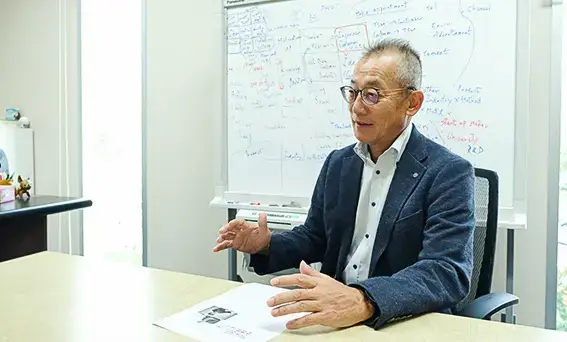
Create an environment where Starlite employees understand and enhance each other as One STARLITE.
Repayment to Thai Starlite… That is your drive, isn’t it?

YT:As management, I am currently learning about Thai Finance, Labor, and Legal affairs, and am gradually creating a working environment together with local consultants and corporate lawyers. I support both Japanese expatriates and local employees so that they can cooperate, communicate and grow together. For example, I provide opportunities for Japanese expatriates to proactively learn and master Thai (language school and tutor) and I encourage direct dialogue with local Thai as much as possible. I did the same practice in China.
I am especially focusing on KY (risk prediction) training for local employees. Safety (life) comes before profit no matter where we work. When I implemented 5S* and Red Ticket Activity* in all plants, it caused huge booing and everyone was complaining “it is just too much trouble!” However, I took the initiative and carried them out. As the effects of the improvements became more apparent, they started to feel “work is getting easier” and think “Y actually cares about us.” Nowadays, the local section managers are the trainers when providing training.
Risk prediction education fosters a culture of caring for and helping fellow workers
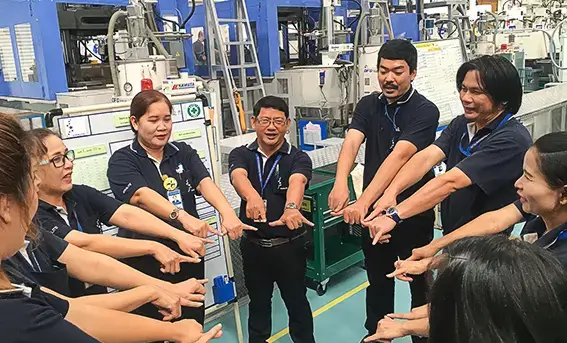
- 5S Activity: 5S stands for sort, set in order, shine, standardize and sustain and this is the basic concept for workplace improvements in manufacturing production sites.
- Red Ticket Activity: Activity to visualize hazardous areas and equipment breakdown status in the workplace.
I want local employees to stand on their own feet no matter where they go next.
What is important to you in supporting the development of local employees?

YT:Whether it is in China or Thailand, what I strongly feel through learning from/with local employees is that people are all different. We must first understand the culture and education of each country without making wild assumptions based on our own experiences in Japan, such as “if you can do this, you can do that too”. We must then carefully communicate our thoughts and way of thinking. Of course, Starlite’s unique aspects too. If this is not conveyed, the value of my existence will disappear.
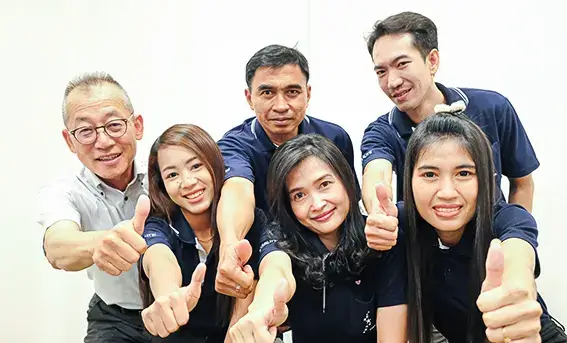
What are the “Starlite’s unique aspects” that you want to pass on to overseas members?

YT:I think that it is the strength of the people who have set themselves a target and are willing to do things without being carried away and giving up. They don’t wait for instructions and they work at their own discretion. Thai Starlite is still a work-in-progress, but I feel it is becoming more widespread at Starlite China.

IS:I think so too. I think this is probably due to the Chinese education system. Chinese people tend to act based on the standard of “to be recognized as a respectable person” rather than “what I want to do”. The easiest thing to do at work is “to shut up and follow instructions of superiors”, and I see many Japanese people doing this lately. However, I am trying to create “opportunities” to promote a more independent way of thinking so that people will “decide for themselves and take responsibility for their own actions” based on the foundation that Mr. YT created.
I entrust local members with tasks that require snap decisions, for example, to lead a project and deal with customers as a leader. What is needed to develop the ability to judge is a series of experiences. By repeating the process of “facing a problem” “thinking on your own” ”taking action” and ”making improvements,” you will gradually build up your confidence as well as judgment skills. In this way, local members are recognized and entrusted with the management. When they achieve good results, I praise them in front of everyone.
Everyone is rational and has the ability to take action. When they get serious, their power is amazing. I am hopeful that we develop a culture in which employees can keep challenging without fear of making small mistakes, employees will increasingly use their own ideas in practice, and they gain confidence as well as greater joy.
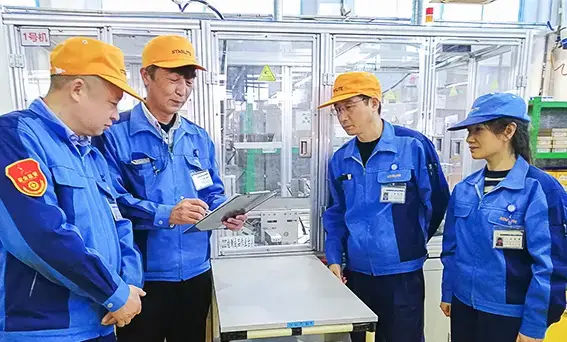
Interview Summary
STARLITE CREATORS tenaciously made efforts to have better relationships with their employees without giving up even if they were disliked at the beginning. Their compassion and spirit were shared even abroad. I was reminded that, even though our countries and languages are different, we share the same STARLITE values and I am hopeful that business will expand further.
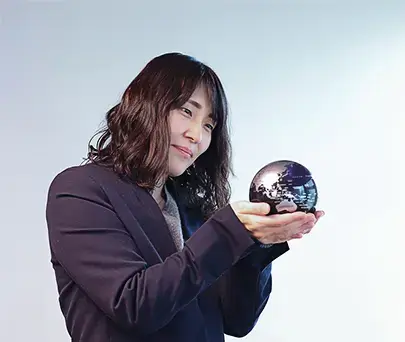
We look forward to working in partnership with you!
Please visit our corporate information to find more about:
